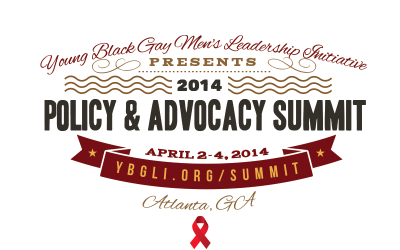 April second through the fourth saw 55 young black men from across the nation to meet in Atlanta, Georgia for the YBGLI’s second Policy and Advocacy Summit. When I confirmed to my parents that I was gay so many years ago they warned me that my life would be very difficult, and that it would be full of barriers that would require me to be the very best in everything that I do. This belief stayed within and made me believe until more recently that if I was not perfect or the best in whatever I was attempting then there was no reason trying to pursue.
April second through the fourth saw 55 young black men from across the nation to meet in Atlanta, Georgia for the YBGLI’s second Policy and Advocacy Summit. When I confirmed to my parents that I was gay so many years ago they warned me that my life would be very difficult, and that it would be full of barriers that would require me to be the very best in everything that I do. This belief stayed within and made me believe until more recently that if I was not perfect or the best in whatever I was attempting then there was no reason trying to pursue.

While on my flight heading to Atlanta so many thoughts were running through my head. I really wanted to work hard to learn as much as possible and network. I am not going to lie when I felt as if the summit would be the same as any other conference, which would be information overload and maybe some opportunities to network. We all met downstairs to talk and network before walking over to the location we had our first session waiting for us. It was a great opportunity because it was a happy hour. This allowed us to begin the process to truly get to know each other. It was truly great to see old friends but have the ability to start the process of making new ones. Our first night had us at The Evolution Project. The Evolution Project is a drop-in community center for young black gay/bisexual men and transgender individuals between 18 and 28 years of age. There we got an overview of the drop-in center, listened to representatives of AID Atlanta and the state health department, and got to hear from Jose R. Rodriguez-Diaz who is the CEO of AID Atlanta. We then received a presentation on the Affordable Care Act and then had a private screening of Blackbird by Patrik-Ian Polk.
Throughout the next day and a half we discussed health disparities, policy, advocacy, HIV prevention among Young Black Men Who Have Sex with Men (YBMSM), research, leadership, Feminism and its importance to Black Gay Men, and personal development & personal branding. The always-fantastic Testing Makes Us Stronger Team gave a presentation on their program to us before the Twitter Town Hall that will forever remain one of the most interesting experiences of my life.
On the final day, we had two very special events and both of them I will cherish for the rest of my life. We had the pleasure of having Dr. Theo Hodge, whom is a provider in DC, yet shared his story about his experiences in the district during the AIDS epidemic. Hearing him tell the stories of having clients taking HIV medications in the handfuls, the effects of AZT that were physically noticeable, and more importantly reviewing the timeline of then to here. The recording of the presentation needs to happen so it has the opportunity to play for every Young Black Gay Man (heck everyone) who is not familiar with the history of HIV. Our group truly enjoyed his charisma and his ability to convey such a serious story in a way to continue to engage us throughout our time together. Finally, the last session of the summit was one where Dr. David Malebranche, Dr. Sheldon D. Fields, Robert Miller, and Mr. Bernard Owens each gave us their stories and additional encouragement. I cannot tell you how much I saw the future me in these men. Each of them made me feel so comfortable I was able to break down my walls of protection and cry on their shoulders. I finally was able to let out my internalized stress and express my frustrations in a space where I felt as if I did not have to be either politically correct or forced to give some bullshit pageant reply like “I just want world piece.” It is truly a blessing to be in this position; however, it sometimes makes me feel extra diligent to stay on my Ps and Qs (even if that means saving those conversations for ‘kitchen table talk’). Immediately they offered their experiences and friendships and I am happy to say that post YGBLI’s Policy and Advocacy Summit we are still in contact and their words and perspectives have been invaluable. Having this opportunity would have been very difficult to achieve outside of this space.
This summit was definitely a success and far exceeded my expectations. The participants were very diverse and came from different geographical areas and professional (not just HIV). Topics were set but we had the ability to truly dissect what we were discussing, even if it transitioned off-topic for a bit. Having the ability to speak to representatives of our government agencies (CDC, HRSA, SAMHSA, and the Georgia Department of Public Health) gave us the ability to voice our concerns, thoughts, and ideas. The lack of job vacancies/internships and leadership positions, slow approval times for marketing materials, lack of funding to rural and other low socioeconomic communities that are seeing a rise in HIV, lack of cultural competency, and a vast array of others issues that were mentioned during this time period. I concern I had was that many of the representatives on the panel were white and only two members participating were Black. This is a perfect reminder that we need to have more opportunities to have Young Black Men Who Have Sex with Men (to include those who are HIV-positive) to fill these seats in the future to ensure that decisions made for us are created by and come from us. A huge shout-out though goes to Mr. Harold Phillips of HRSA who saw a need to address our questions due to the lack of time/ability of those reps on the panel to answer them. He graciously volunteered his own time to say back lack from 12am-1am to answer any of the questions he could. During this time, our awesome Organizing Committee Members took who concerns down and later brought them up with Douglas Brooks, the New Director  of the Office of National AIDS Policy (ONAP). Feeling as if we had a voice was very empowering. Having that experience has and will continue to ensure engage my government on concerning issues.
of the Office of National AIDS Policy (ONAP). Feeling as if we had a voice was very empowering. Having that experience has and will continue to ensure engage my government on concerning issues.
The Policy and Advocacy Summit allowed for the formation of new relationships and partnership .It was like a beginning of a new brotherhood. From my end, there were phenomenal conversations and I cannot wait to announce fantastic news in the coming weeks! Addressing surviving as an YBMSM professional, leadership, and more importantly branding made me look at myself and analyze ways I can still to this day continue to seek self-improvement. This summit created a space where we could exchange stories, ideas, experiences, and more importantly continued support for one another. To this day, I am still in contact with many of my new friends and colleagues as we check in or support each other through the struggles of being an YBMSM in a society that has serious issues accepting us as social norms.
Coming to a close of the summit Daniel Driffin, Chair of the Organizing Committee for YBGLI said something that we all took back to our homes, careers, and everyday lives. This was that our voice does matter, no matter where we were, no matter how hard the struggle was, and no matter how much we felt like our voices were unheard. This can seem very frustrating at jobs or ASOs where our advice or knowledge isn’t used; we continue to be disenfranchised; we deal with disrespect or ignorance from Cisgender white men (even gay) who do not truly understand the struggles and barriers of being a young Black Man who loves Men. These men still face a huge war within our own communities, to include mainstream society. His words really were soothing and helped to bury anger and resentment I had from some of those situations. In the end, I truly hope that this summit continues and wish that many more could take place across the country. If we can get more YBMSMs to go through a program like this, our community would see an increase in advocacy, activism, enlightenment, and progression toward more solidarity.
we felt like our voices were unheard. This can seem very frustrating at jobs or ASOs where our advice or knowledge isn’t used; we continue to be disenfranchised; we deal with disrespect or ignorance from Cisgender white men (even gay) who do not truly understand the struggles and barriers of being a young Black Man who loves Men. These men still face a huge war within our own communities, to include mainstream society. His words really were soothing and helped to bury anger and resentment I had from some of those situations. In the end, I truly hope that this summit continues and wish that many more could take place across the country. If we can get more YBMSMs to go through a program like this, our community would see an increase in advocacy, activism, enlightenment, and progression toward more solidarity.
A very special thank you goes out to NGBMAC, NASTAD, The City of Atlanta, AID Atlanta, The Evolution Project, Testing Makes Us Stronger, Sphere Lab, The Red Door Foundation, Inc., AIDS.gov, Gilead, San Francisco AIDS Foundation, Georgia Department of Health, Impulse Group, AHF, Hudson Grille, Patrik-Ian Polk, HRC, Broadway Cares, Levi Strauss Foundation, Renaissance Atlanta Midtown Hotel, Summit Faculty, OC Members, and more importantly the participants for making this event happen. For more information check out www.ybgli.org
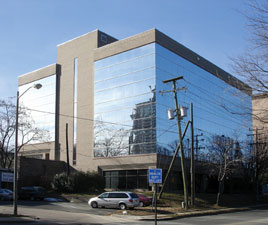

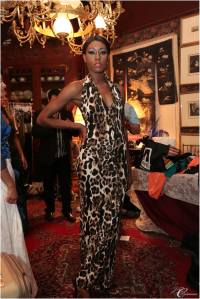
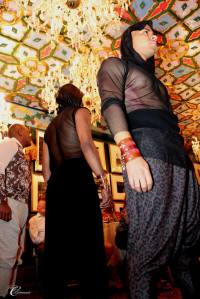
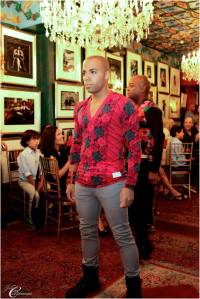
 WASHINGTON, D.C. (July 7, 2014) – The ADAP Advocacy Association, also known as aaa+, today announced the recipients for its 2014 Annual ADAP Leadership Awards, which recognizes individual, community, government, media and corporate leaders who are working to improve access to care and treatment under the AIDS Drug Assistance Programs. The eight leadership awards will be presented during the 4th Annual ADAP Leadership Awards Dinner being held on Monday, August 4th at 7:00 pm in Washington, DC. The dinner will be held in conjunction with its 7th Annual Conference, being held at the Westin Washington DC City Center on August 3-5, 2014.
WASHINGTON, D.C. (July 7, 2014) – The ADAP Advocacy Association, also known as aaa+, today announced the recipients for its 2014 Annual ADAP Leadership Awards, which recognizes individual, community, government, media and corporate leaders who are working to improve access to care and treatment under the AIDS Drug Assistance Programs. The eight leadership awards will be presented during the 4th Annual ADAP Leadership Awards Dinner being held on Monday, August 4th at 7:00 pm in Washington, DC. The dinner will be held in conjunction with its 7th Annual Conference, being held at the Westin Washington DC City Center on August 3-5, 2014.

 of the Office of National AIDS Policy (ONAP).
of the Office of National AIDS Policy (ONAP). we felt like our voices were unheard. This can seem very frustrating at jobs or ASOs where our advice or knowledge isn’t used; we continue to be disenfranchised; we deal with disrespect or ignorance from Cisgender white men (even gay) who do not truly understand the struggles and barriers of being a young Black Man who loves Men. These men still face a huge war within our own communities, to include mainstream society. His words really were soothing and helped to bury anger and resentment I had from some of those situations. In the end, I truly hope that this summit continues and wish that many more could take place across the country. If we can get more YBMSMs to go through a program like this, our community would see an increase in advocacy, activism, enlightenment, and progression toward more solidarity.
we felt like our voices were unheard. This can seem very frustrating at jobs or ASOs where our advice or knowledge isn’t used; we continue to be disenfranchised; we deal with disrespect or ignorance from Cisgender white men (even gay) who do not truly understand the struggles and barriers of being a young Black Man who loves Men. These men still face a huge war within our own communities, to include mainstream society. His words really were soothing and helped to bury anger and resentment I had from some of those situations. In the end, I truly hope that this summit continues and wish that many more could take place across the country. If we can get more YBMSMs to go through a program like this, our community would see an increase in advocacy, activism, enlightenment, and progression toward more solidarity.